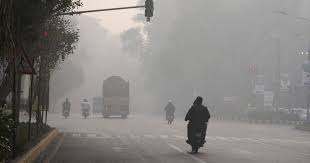
Addressing the Growing Air Quality Crisis
In response to the escalating air pollution crisis in Pakistan, the government has introduced stringent measures aimed at reducing harmful emissions and improving air quality across major cities. With cities like Lahore and Karachi often ranking among the most polluted in the world, the government recognizes the urgent need for action to protect public health and mitigate environmental damage. The new regulations focus on curbing industrial emissions, reducing vehicle pollution, and promoting the use of cleaner technologies. These initiatives are part of a broader environmental strategy to combat air pollution, which has become a significant public health issue in the country.
Regulations for Industries and Factories
One of the key components of the new air pollution control measures is the introduction of stricter regulations for industrial emissions. The government has implemented tighter emissions standards for factories and power plants, especially those operating in urban and industrial zones. Industries will now be required to install pollution-control technologies, such as scrubbers and filters, to reduce the release of harmful gases and particulate matter into the air. Regular monitoring of industrial emissions will be carried out, and heavy fines will be imposed on facilities that fail to comply with the new regulations. This move aims to reduce the environmental footprint of industrial activities and create cleaner, healthier cities.
Cleaner Transportation Initiatives
Transportation is another significant contributor to air pollution in Pakistan, especially in densely populated urban areas. To address this, the government is rolling out measures to promote the use of cleaner vehicles, including electric cars and public transport options. In addition to offering incentives for the purchase of electric vehicles (EVs), the government is focusing on upgrading the public transport system by introducing electric buses and modernizing the existing fleet to meet environmental standards. Measures such as these aim to reduce the number of outdated, high-emission vehicles on the road and encourage citizens to adopt eco-friendly transportation alternatives. The government is also working to improve traffic management and reduce congestion, which contributes to air pollution.
Promoting Green Energy Solutions
The government’s air pollution control measures also include a push for renewable energy and green technologies. Pakistan aims to reduce its reliance on coal and other fossil fuels, which are significant contributors to air pollution. To this end, the government is investing in solar, wind, and hydroelectric energy projects to transition towards cleaner, sustainable energy sources. By increasing the share of renewables in the national energy mix, Pakistan hopes to reduce emissions from power generation, which is one of the largest sources of air pollution. These investments in green energy will not only improve air quality but also contribute to Pakistan’s broader goals of combating climate change and promoting sustainable development.
Public Awareness and Long-Term Strategy
Along with regulatory measures, the government is also focusing on public awareness campaigns to educate citizens about the dangers of air pollution and the importance of reducing their environmental impact. These campaigns will highlight simple actions that individuals can take, such as reducing vehicle use, avoiding the burning of waste, and conserving energy at home. In the long term, the government’s strategy involves creating a comprehensive national plan to tackle air pollution that includes urban planning reforms, green spaces, and the adoption of innovative technologies for pollution control. By combining regulatory measures, technological innovations, and public engagement, the Pakistani government aims to significantly improve air quality and safeguard the health of its citizens for future generations.
Explore the best games to earn real cash today


